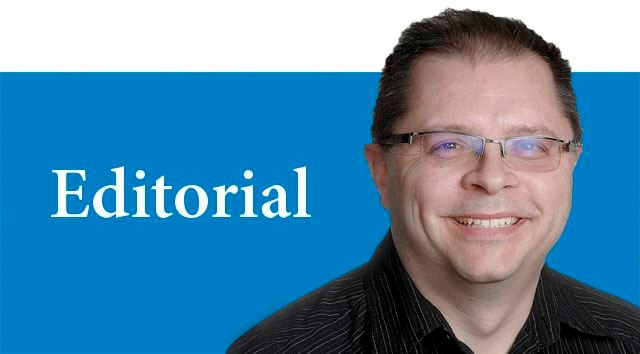What are the odds of two people from Prince George winning significant lottery jackpots in the same week?
The number is so close to zero that, as far as a statistician or a poker player would see it, it is zero.
Patrick Kukko won $1 million in the
Dec. 30 Lotto Max Maxmillions draw, as all seven numbers drawn matched the ones on the ticket he bought at the Blue River Petro-Can station. The winning odds are one in 28.6 million. That's roughly how many teaspoons of water it would take to fill the main pool at the Prince George Aquatic Centre.
By comparison, Laura Bower's win was a sure thing. She hit all four of her numbers on the Dec. 24 Lotto 6/49 Extra draw, worth $500,000. The odds were just one in 3.8 million. That's the number of quarter-cup measuring containers it would take to fill the pool.
Despite these outrageous long odds, people still fantasize about being the next Patrick Kukko or Laura Bower, about winning the big one. Their wins provoked numerous conversations across Prince George this week about what people would do if their numbers came up.
Retiring and travelling the world, paying off the mortgage and the consumer debt, helping out friends and family or becoming a full-time philanthropist donating to various deserving charities are always high on the list. Yet so few people spend time dwelling on the odds of bad things happening or on the fact that one or more of those bad things happening is significantly more likely than winning a single huge lottery jackpot.
Well, some people do spend time (and get paid) to think about it. They're called actuaries and most of them work for insurance companies, continuously calculating and recalculating the odds of a variety of accidents, injuries, deaths and dismemberments, which is then used to figure out what people should pay on their insurance policy.
It's complicated, of course. There are so many variables - a statistician's nightmare - that come into play. That's why insurance agents ask so many questions and that's why many policies often require a blood and/or a saliva test. That additional data can help provide more certainty to the odds.
Taking it one step further, DNA analysis can now identify the likelihood of an individual acquiring a host of hereditary conditions based on genetic code sequence, from baldness to Alzheimer's.
Then factor in everything from gender (men die younger and young men die more often than young women) to lifestyle (smoking, drinking, drug use), career choice, height, weight, already existing conditions and even place of birth.
The numbers actuaries find are disturbing.
The average 20-year-old Canadian woman has a roughly one in 2,000 chance of dying before her 21st birthday. That's 1,900 times more likely to happen than hitting all four numbers on the Extra and 14,300 times more likely to occur than landing all seven numbers on the Lotto Max.
Sorry to be Debbie Downer but it's far worse than that when the numbers are placed in a local context.
That same 20-year-old woman is as likely to die in the next year as she is of winning the 50/50 draw at a Prince George Cougars game. She is five times more likely to die before she turns 21 than she is of winning either the hospice home lottery or the Spruce Kings home lottery with a single ticket. A 40-year-old woman is 15 times more likely to die before 41 than she is of winning either of those lotteries.
That doesn't mean people shouldn't spend money on lotteries.
In the case of hospice, the Spruce Kings and the Cougars, putting the money down should be seen as a non-tax-deductible charitable donation, rather than a chance to win. Buying the Lotto Max or the 6/49 should be seen as paying a voluntary tax to the government.
The numbers shine a sober, harsh light on the real odds of real life happening far more frequently than a fantasy lottery win.
When informed of such odds, a colleague blurted out "no, no, those odds don't apply to me." That's the common response because our individual lives feel singular and extraordinary to us. We can't help but believe that numbers and statistics don't apply to our lives, hence our unrealistic expectation that we might actually win and our surprise and outrage when informed of the risk we pose when buying insurance.
Lottery ticket vendors often wish buyers good luck as they take the cash and hand over the ticket. In reality, they'd be better off wishing the buyer that he or she lives to see 2018, because there's a far greater chance that they won't than there is of the winning ticket being placed in their hand.
-- Managing editor Neil Godbout



